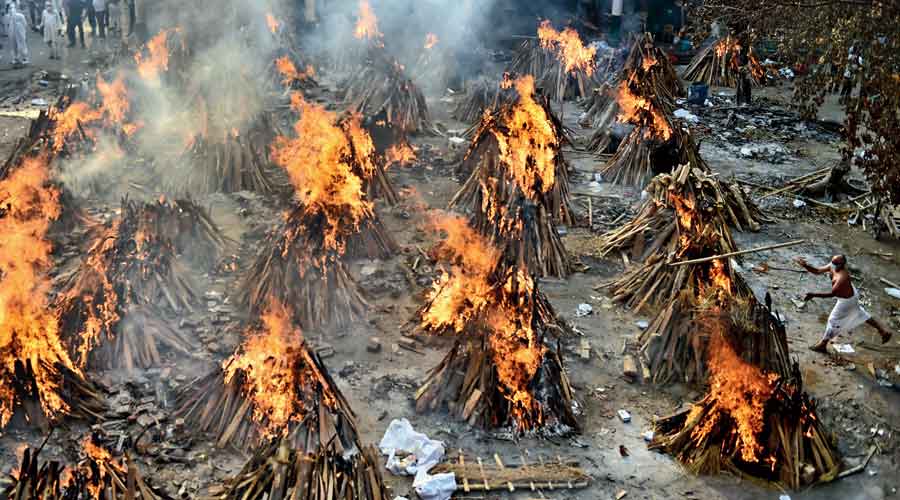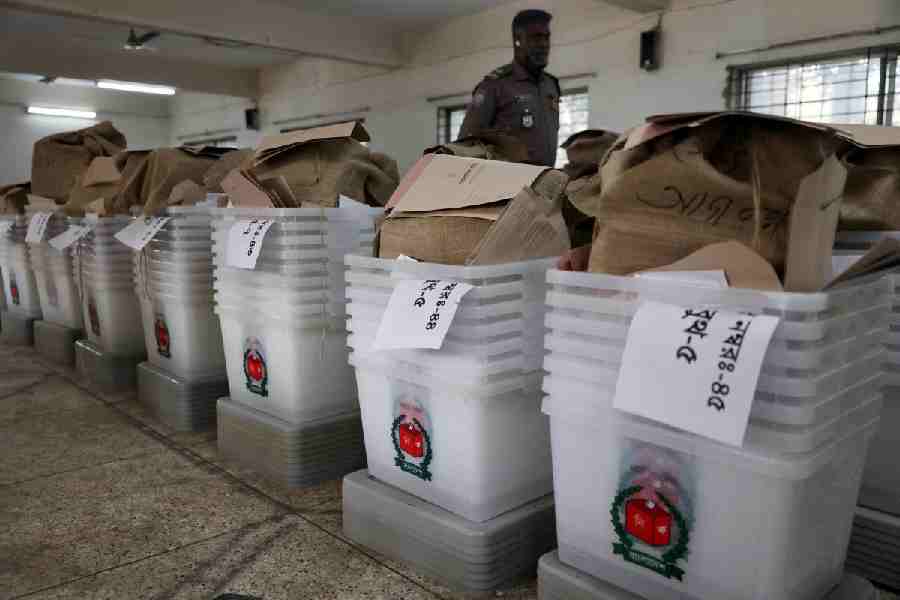The attack by Israel on the al-Jalaa building on May 15 where Al Jazeera’s office was located along with other offices has since been widely denounced by citizens, international agencies and media organizations from all continents. The multi-storied building came tumbling down, leaving many dead and wounded. The media house, Al Jazeera, was given barely an hour’s notice to vacate the building before the attack. The heinous act has its roots in a 73-year-old decision to create Israel as a country for Jews who had been without a homeland for centuries. The idea of a Jewish homeland, Zion, was articulated by Theodor Herzl in his book, Der Judenstaat (1896), which soon became the early-twentieth-century credo for Zionism. It was in May 1948 that Israel was carved out as a country for Jews from all over the world, leading to the forced displacement of some 700,000 Arabs.
The phenomenon of making such a huge number of people homeless to create a home for others who had been historically homeless and scattered was captured in the popular imagination by the Arabic term, nakba. It means a great catastrophe or a phenomenal disaster. Initially, the term was used from the perspective of the Palestinian Arabs. Subsequently, as the conflict between the Palestinian Arabs and the Israeli Jews acquired local tones and a different texture in international diplomacy, the term was pressed into service to depict — quite ironically — the plight of Israeli victimhood. Today nakba or naxba — it is spelt both ways — is understood neither exclusively as Arab victimhood nor entirely as Israeli victimhood.
May 15, which marks the anniversary of the nakba, was chosen for the attack so that it conveyed a clear message to the community of nations. The symbolism was not about the selfhood of the Jewish homeland. It was, unfortunately, more about the ascendancy of the rightist politics. It was about the normalization of violence and genocide; and it was also about twisting history in which dominance by force itself becomes a moral validation for action. It is sad, although not surprising, that Zionism has been held by the Rashtriya Swayamsevak Sangh as worthy of emulation in an India on its disastrous way to becoming a Hindu rashtra. The Arabic word, naxba, brings to one’s mind another Arabic term, nauba. That, too, means a catastrophe, a disaster, or a situation or a condition inviting catastrophe. In time, the Arabic, nauba, became naubat in Persian and is in use in Hindi, Marathi and Gujarati with similar meanings. The difference between the two terms is that while nakba refers to the silent pain and suffering caused by a numbing catastrophe, nauba brings home woe and wailing in anticipation of an impending catastrophe.
The entire months of April and May 2021 have the character of an unparalleled naubat in India. Switch on a television channel, open a newspaper or a magazine, or pick up the phone and call a friend, you will notice this shroud of naubat enveloping the words that come to you. Quite clearly, we are in the middle of a calamity, the scale of which has no precedence in known history. The coronavirus pandemic has affected nearly three crore persons. Over the last few days around two lakh new cases are being reported daily. One hopes that this number does not rise to seven to eight lakh everyday by mid-June as is being predicted by experts. We are not thinking of the third phase as yet, although there is near certainty that another deadly phase may affect India.
Some recent media investigations indicate that the actual number of casualties is many times more than the official number of deaths during the second wave of Covid-19; but even the compacted official statistics are frightening. The figures are larger or on a par with those of victims in other remembered natural or man-made calamities. The Spanish Flu in 1918-19 affected 17 million persons. The Partition of India and Pakistan resulted in the death of persons between one to two million (the claims vary). The Bangladesh war saw 2,69,000 persons killed in the subcontinent — Pakistanis, Indians and Bangladeshis. The Killari earthquake killed over 30,000 while the Kutch earthquake took 18,600 lives. The official figure of the dead due to the coronavirus has crossed the 3,00,000 mark, and the number of infected persons is nearing 30 million even if one does not consider the records of crematoria or the corpses fished out of rivers.
The coronavirus pandemic is going to intensify as the weeks pass by. One simply does not know how high the toll will be if the dreaded third wave hits us. The tribal and rural districts, which had remained relatively unaffected so far, have started showing high incidence of Covid-19. Millions of families have already been devastated. They have lost their dear ones, lost jobs, lost opportunities, lost hope. Sadly, the coronavirus epidemic is also coupled with an ideological virus. What we are facing is not just an individual’s tragedy: it is a large, unprecedented and universal catastrophe, a nakba or a nauba.
What is shocking is that the Central government has not just been ineffective in coping with the catastrophe but even cynical in its approach. No prime minister of a populous country with its people living in extremely crowded cities and towns would have kept the management of the coronavirus on hold deliberately in view of the visit of a foreign dignitary in February 2020. No prime minister would have allowed, encouraged and actively endorsed huge election rallies and religious melas knowing well that the second wave had already set in. No one, except the most superstitious, would have allowed vaccine-producing companies to export vaccines when the requirement at home was so overwhelming; and no regime would have faked a narrative, making the Tablighi Jamaat gathering appear as the source of the trouble.
While scientists all over the world are working round the clock to find a foolproof scientific response to the Covid-19 threat, the Modi regime has been busy undermining scientific thought. I write these words in pain, not in anger. There is news of death of a family member or a relative in every home, every mohalla, every family. Death surrounds us today. One feels sad that when the new grand Parliament building comes into being, the first meeting held there may turn out to be one for national mourning. When the Ayodhya temple comes into existence and is open for worship, the first expression may — I hope not — be ‘Hey Ram’. What an unprecedented nauba, biological and ideological.
G.N. Devy is a literary scholar and cultural activist ganesh_devy@yahoo.com











